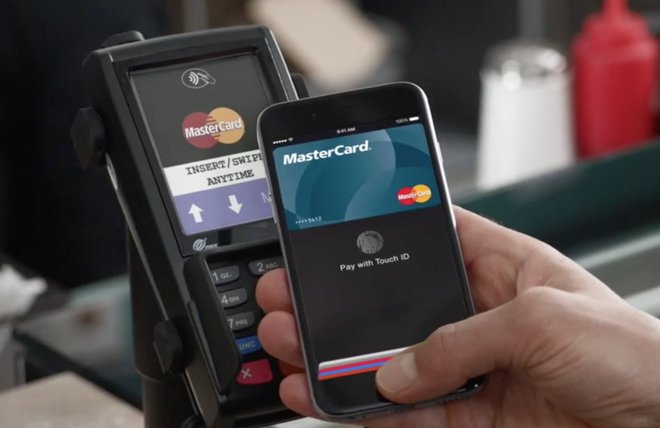Negotiations between Apple and China's state-owned credit and debit card processor UnionPay to launch Apple Pay services have hit a wall, according to a report on Monday, suggesting iPhone 6 owners in the region may not be able to use Apple's mobile payments service anytime soon.
Citing sources close to ongoing talks, MarketWatch reports Apple and UnionPay have not yet reached an accord on how Apple Pay will roll out in China, a feature expected to debut with iOS 8.3 last week.
The publication previously pegged Apple's NFC-based service to launch in March, but later said talks with UnionPay stalled. As of today, a rollout timeline does not exist, the report said.
Apple has little choice but to move through UnionPay, as the company handles all interbank transactions in mainland China. For example, both China Mobile and China Unicom field NFC payment services, but each system links with UnionPay to transfer money from customer bank accounts.
In addition to UnionPay, sources claim Apple engaged in talks with eight major Chinese banks last year, but those discussions also failed to pan out. Along with technical hurdles, Apple's fees are thought to be a major obstacle to obtaining Chinese ratification. In the U.S., Apple takes 0.15 percent of a 2 percent per-payment merchant fee, plus a half-cent per-transaction charge. Chinese banks are reportedly reluctant to cede such high percentages to Apple.
With iPhone 6 and 6 Plus selling in record numbers, Apple is looking to expand support for its branded touchless payments service beyond U.S. borders, though negotiations have yet to bear fruit. Reports in December said Apple was discussing options to release a UK version of Apple Pay in early 2015, but that timeline has been pushed back as talks with local banks continue.
 AppleInsider Staff
AppleInsider Staff








 Charles Martin
Charles Martin

 Malcolm Owen
Malcolm Owen
 William Gallagher
William Gallagher

 Christine McKee
Christine McKee
 Wesley Hilliard
Wesley Hilliard









20 Comments
Australia has the highest percentage penetration of wireless NFC terminals and the highest rate of payment using those wireless terminals (nearly 2/3rds). Both representatives from Visa and Mastercard have already made mention of rolling out tokenisation in 2015 in the land downunder. Mastercard went so far to suggest that Australia would be their first Asian Pacific country. If anything, I think we'll see Australia/Canada/UK/Sweden/Germany before we see China. These four regions are much further ahead with both wireless and tokenisation plans. The delay for Apple Pay is not Apple, and unfortunately there isn't too much that Apple can do at this stage. Apple pay launched the *same month* tokenisation became available in the USA.
If anything, I think we'll see Australia/Canada/UK/Sweden/Germany before we see China. These four regions are much further ahead with both wireless and tokenisation plans.
4 of the top 5 card issuers are in China. On the other hand, Germany has one of the lowest payment card use rates in the West, and out of those, the majority is Girocard.
Could be a matter of the right corrupt official not yet being adequately taken care of or maybe China will simply rip off Apple Pay wholesale and implement their own stolen technology version.
Nothing new to report in this article. Apple continues to negotiate with Union Pay. China has a monopoly on credit card use. So Apple continues to negotiate. If anything, it will be the growth of Apple marketshare with the wealthy in China that is going to pressure Union Pay to allow Apple Pay. And China's affluent class buys a third of all the luxury goods in the world. They only buy iPhones. It would be a loss of face to buy something signaling cheapness as an Android phone. So as the iPhone is used by more and more of China's affluent, it will be a weight that Union Pay cannot ignore.
In the U.S., Apple takes 0.15 percent of a 2 percent per-payment merchant fee, plus a half-cent per-transaction charge. Chinese banks are reportedly reluctant to cede such high percentages to Apple.
What is the regular merchant fee in China? Do they even charge a fee to its citizens, or is it a matter of the Chinese government not wanting Apple (or any foreign company) to have that kind of monetary access to the Chinese people?
What really pi$$es me off about the Chinese government is their refusal to allow foreign companies access to its market, or make it hugely difficult to the point of folks giving up, or having to hand over IP in the name of "national security". I thought the point of being in the WTO is adhering to a set of rules to allow equal access to each other's market? China's arrogance and abuse of the WTO should have booted them out ages ago. The WTO has shown zero cajones in dealing with China. China knows it can get away with it knowing that the global economy wants their $30 microwave ovens.
Enough is enough. Jettison China out of the WTO like a bad habit.